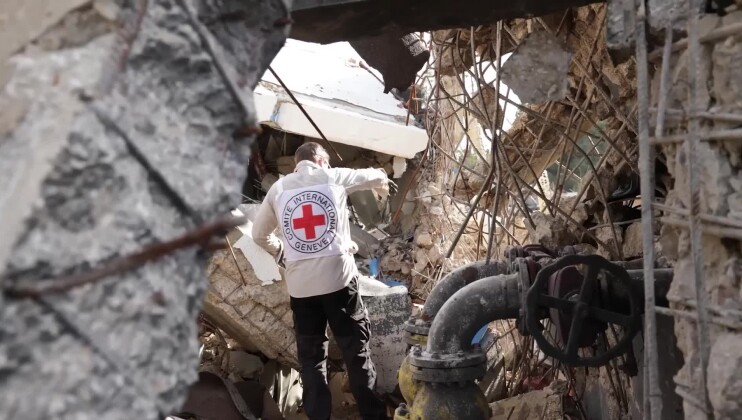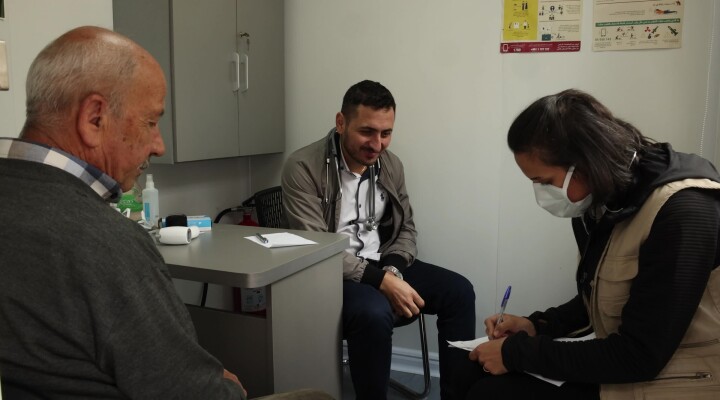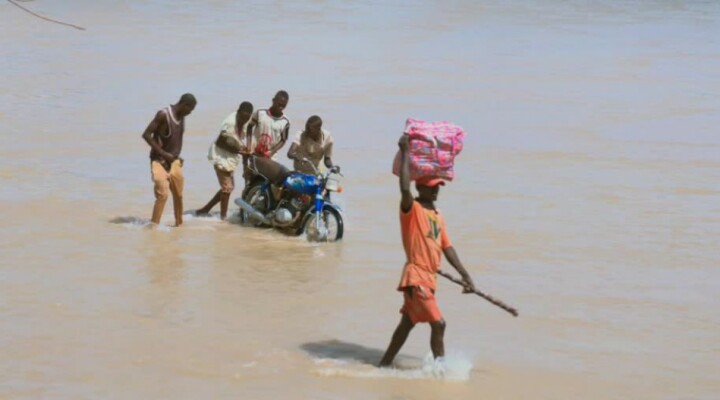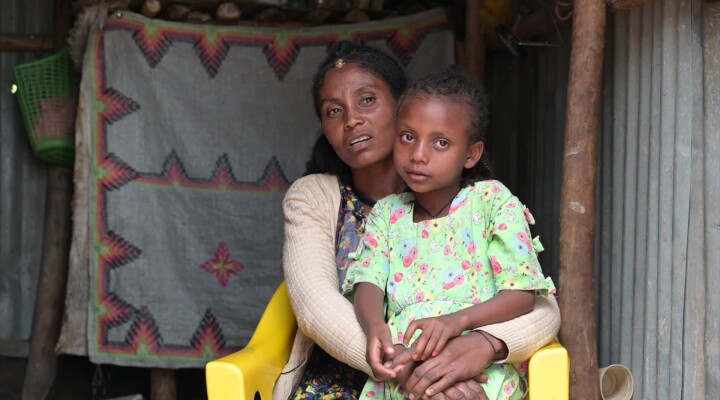Libya: Man reunited with family after 43 years apart
Benghazi, May 2012. As he steps onto the tarmac at the airport of his hometown for the first time in 43 years, Abdussalem Al-Naji is overwhelmed by emotion. He is greeted by his brothers, cousins and friends, as well as numerous children born to his relatives in his absence. That morning, Abdussalem was still in his flat in Dättwil, a small, quiet town in the Swiss canton of Aargau.
Exiled in Switzerland since the 1969 coup that brought Gaddafi to power, Abdussalem married Frieda, had three children and worked as an engineer at the Revox factory in Baden. Now 72, the retiree had severed all connections with his past. Until the day he got a call from the Swiss Red Cross, in December 2011. He learnt that his brother-in-law Ahmed was looking for him and had written him a message: "My dear brother, I pray to God to reunite us as soon as possible. I am in good health; the only thing missing is to see you again."
This message, collected by the ICRC office in Benghazi and forwarded to the Swiss Red Cross tracing service in Bern, was finally delivered in person to Abdussalem Al-Naji. As Nicole Windlin, head of restoring family links at the Swiss Red Cross, explains: "We were able to track down the Naji family quickly and our colleague delivered the message from his relatives. It's very important to support these people at such an emotional time." Abdussalem filled in the Red Cross message reply form on the spot, which was sent back to his brother-in-law.
At that point, telephone calls started going back and forth between Switzerland and Libya. Abdussalem spoke to his family every week, catching up on the good and the bad news. It was a shock to learn of the death of his mother during his absence. For 43 years, apart from some sporadic telephone calls in the early 1980s, they had chosen to sever all ties.
Because of fears about their safety, Abdussalem and his family in Libya decided to cease all contact. Silence fell between them. No more telephone calls or letters. The change of regime in 2011 put an end to 43 long years apart.
The ICRC's new website familylinks.icrc.org launches on 13 November 2012. Its purpose is to make people aware of the services provided by the ICRC and the National Red Cross and Red Crescent Societies to trace missing persons.
Unlike the various sites set up in the past in response to specific crises, this new website is permanently online and covers all the environments in which the ICRC and the National Societies work. The user-friendly site provides all the information you need to start a search for a missing relative - in particular the contact details of the people and units working on restoring family links throughout the International Red Cross and Red Crescent Movement.
The website is available in English and contains videos, photos and text illustrating the range of services available. The Arabic, French and Spanish versions should be launched in 2013.
A television advertisement has been produced to make people aware of the site's existence (see TC 05 23 in the news cut). This will be broadcast in countries affected by a conflict or a violent incident.



